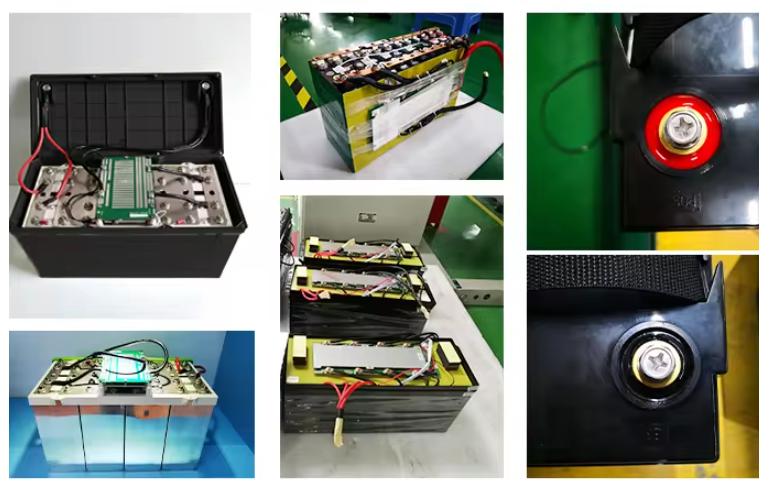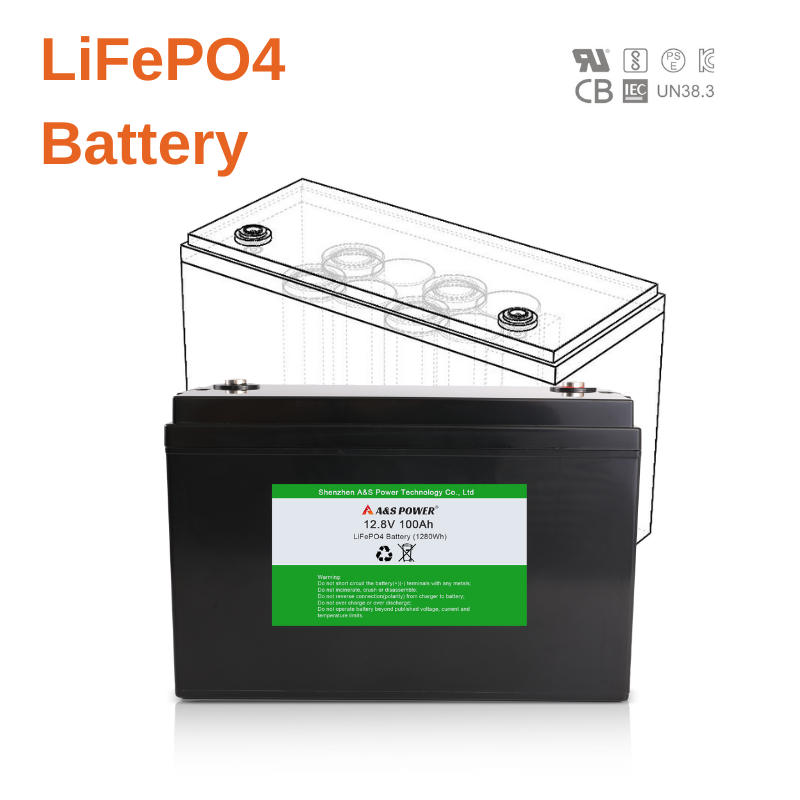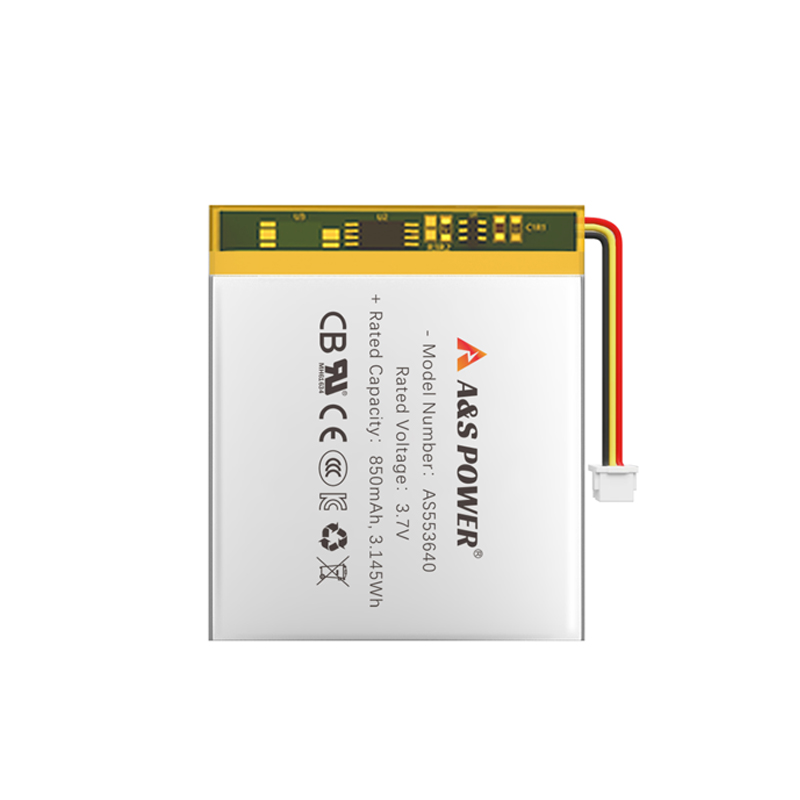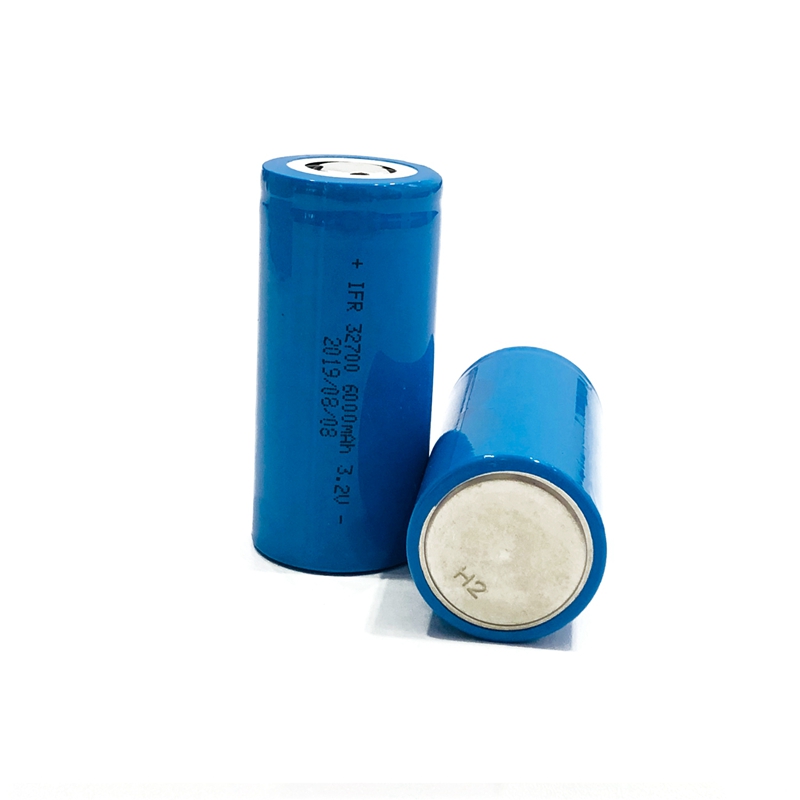The Growing Market of Residential Solar Batteries
2024-06-25
The residential solar battery market presents a promising opportunity for dealers and retailers. With the advantages of high energy density, eco-friendliness, powerful performance, long service life, and lightweight design, LiFePO4 batteries from A&S Power stand out as superior choices. The company's established expertise, strong R&D capabilities, and commitment to quality make it a reliable partner for those looking to capitalize on the growing demand for sustainable energy solutions. By offering advanced LiFePO4 batteries, dealers and retailers can meet the needs of environmentally conscious consumers and contribute to the expansion of renewable energy adoption.

Current Status of the Residential Solar Batteries Market
1.1 Increasing Adoption of Renewable Energy
The global shift towards renewable energy has significantly influenced the residential solar batteries market. Homeowners are increasingly turning to solar power as a clean and sustainable energy source, driven by concerns over environmental sustainability and rising energy costs. The adoption of solar panels has grown exponentially, creating a parallel surge in demand for efficient and reliable energy storage solutions.
1.2 Technological Advancements
Technological advancements have played a crucial role in enhancing the efficiency, lifespan, and affordability of residential solar batteries. Innovations in battery chemistry, particularly the development of Lithium Iron Phosphate (LiFePO4) batteries, have revolutionized the market. These batteries offer superior energy density, longer cycle life, and improved safety features compared to traditional lead-acid batteries.
1.3 Market Players and Competition
The residential solar battery market is becoming increasingly competitive, with numerous manufacturers vying for market share. A&S Power, a prominent player in the industry, stands out with its advanced LiFePO4 battery solutions. Their products, such as the 12.8V 300Ah and 310Ah solar energy deep cycle rechargeable LiFePO4 batteries, cater to a wide range of applications, from residential solar energy storage to electric vehicles and boats.
The Needs of the Residential Solar Batteries Market
2.1 Energy Independence and Reliability
One of the primary drivers for the residential solar batteries market is the need for energy independence and reliability. Homeowners seek to reduce their reliance on the grid and ensure a steady supply of electricity, particularly in areas prone to power outages or with unstable grid infrastructure. Solar batteries provide a reliable backup power source, ensuring continuous energy availability.
2.2 Cost Savings and Efficiency
Cost savings and energy efficiency are significant considerations for homeowners investing in solar batteries. By storing excess solar energy generated during the day, these batteries allow for its use during peak hours or at night, reducing dependence on expensive grid electricity. This not only lowers energy bills but also enhances the overall efficiency of the solar power system.
2.3 Environmental Impact
The environmental benefits of solar batteries are another critical factor driving market demand. By facilitating the use of renewable energy, these batteries help reduce carbon emissions and decrease the overall environmental footprint of households. This aligns with the growing awareness and commitment to sustainability among consumers.
Solutions Offered by Residential Solar Batteries
3.1 Advanced Battery Technology
A&S Power’s 12.8V 300Ah and 310Ah LiFePO4 batteries exemplify the latest advancements in battery technology. These batteries boast a high energy density and a long cycle life of up to 2000 cycles, making them a durable and efficient solution for residential solar energy storage. Their built-in Battery Management System (BMS) ensures optimal performance and safety by monitoring and regulating key parameters such as voltage, temperature, and current.
3.2 Versatility and Applications
The versatility of A&S Power’s LiFePO4 batteries is a significant advantage. These batteries are designed for a wide range of applications beyond residential solar energy storage, including use in boats, golf carts, submarines, electric bicycles and scooters, electric forklifts, electric vehicles, electric wheelchairs, and uninterruptible power supplies (UPS). This flexibility makes them a valuable investment for homeowners with diverse energy needs.
3.3 Customization and Customer Support
A&S Power offers customization options to meet specific customer requirements, ensuring that their batteries can be tailored to different applications and preferences. With a commitment to quality and customer satisfaction, they provide a three-year warranty on their products, along with robust after-sales support. This dedication to customer service enhances the overall value proposition of their solar battery solutions.

Advantages of Residential Solar Batteries
4.1 High Energy Density
4.1.1 Superior Storage Capacity
LiFePO4 batteries, also known as Lithium Iron Phosphate batteries, are renowned for their high energy density. This characteristic allows them to store significantly more energy compared to traditional lead-acid batteries. For homeowners, this means that a smaller and lighter battery can store the same amount of energy, making them more space-efficient and less cumbersome to install.
4.1.2 Deep Charge Rate
The deep charge rate of LiFePO4 batteries provides maximum versatility. These batteries can be discharged to a much lower level without affecting their longevity or efficiency, unlike lead-acid batteries that require a higher charge level to maintain their health and performance.
4.1.3 Enhanced Performance
High energy density translates into powerful performance. LiFePO4 batteries can support more extended periods of use, making them ideal for residential applications where consistent energy supply is crucial. They ensure that homeowners can rely on their solar energy systems for longer durations, even during cloudy days or at night.
4.2 Eco-Friendly
4.2.1 Abundant and Non-Toxic Materials
LiFePO4 batteries are made from more abundant and non-toxic materials. Unlike lead-acid batteries, which contain harmful substances like lead, LiFePO4 batteries use materials that are safer for the environment and easier to handle at the end of their life cycle.
4.2.2 Lower Production Energy
The production process for LiFePO4 batteries requires less energy compared to other battery types. This lower energy consumption during manufacturing further reduces their environmental footprint, aligning with the growing demand for sustainable energy solutions.
4.2.3 Easy to Recycle
Recycling is a critical consideration for any energy storage solution. LiFePO4 batteries are easier to recycle due to their non-toxic composition. This ease of recycling ensures that they have a minimal environmental impact throughout their lifecycle, from production to disposal.
4.3 Powerful
4.3.1 Superior Power Output
LiFePO4 batteries are nearly four times as powerful as Sealed Lead Acid (SLA) batteries. This superior power output makes them an excellent choice for applications requiring high energy and consistent performance, such as residential solar energy systems.
4.3.2 Extended Usage Time
With their higher power capacity, LiFePO4 batteries can provide extended usage time. This means that homeowners can enjoy longer periods of uninterrupted power, which is especially beneficial during power outages or in off-grid scenarios.
4.3.3 Reliable Energy Supply
The robust power output of LiFePO4 batteries ensures a reliable energy supply. Homeowners can depend on these batteries to deliver consistent performance, supporting various household needs from lighting and heating to powering electronic devices.
4.4 Long Service Life
4.4.1 3,000 Charge Cycles
One of the standout features of LiFePO4 batteries is their long service life. These batteries can provide up to 3,000 complete charge and discharge cycles, far surpassing the lifespan of traditional lead-acid batteries. This extended lifespan translates to better value and less frequent replacements.
4.4.2 Durability and Reliability
The longevity of LiFePO4 batteries is matched by their durability. They are designed to withstand frequent use and harsh conditions, ensuring reliable performance over many years. This durability makes them a cost-effective and dependable choice for residential solar energy storage.
4.4.3 Lower Maintenance Costs
Due to their long service life and robust construction, LiFePO4 batteries require less maintenance than lead-acid batteries. This reduces the overall cost of ownership, making them an economically attractive option for homeowners looking to invest in renewable energy solutions.

4.5 Light Weight
4.5.1 Convenient Installation
LiFePO4 batteries are not only powerful but also lightweight. This light weight makes them easier to transport and install, reducing labor costs and installation time. Homeowners and installers alike benefit from the convenience and ease of handling these batteries.
4.5.2 Versatility in Applications
The lightweight nature of LiFePO4 batteries enhances their versatility. They can be used in various applications beyond residential solar energy storage, including boats, golf carts, electric bicycles, and scooters. This versatility makes them an attractive option for a wide range of energy storage needs.
4.5.3 Improved Efficiency
The combination of light weight and high energy density results in improved overall efficiency. LiFePO4 batteries can deliver high performance without the bulk and weight of traditional batteries, making them a smart choice for modern, efficient energy storage systems.
Conclusion
The residential solar batteries market is experiencing rapid growth, driven by the increasing adoption of renewable energy, technological advancements, and the need for energy independence and cost savings. A&S Power is at the forefront of this market, offering advanced LiFePO4 battery solutions that cater to a wide range of applications. Their commitment to innovation, quality, and customer satisfaction positions them as a leading player in the industry. As the demand for sustainable energy solutions continues to rise, residential solar batteries will play an increasingly vital role in shaping the future of energy consumption and storage.











